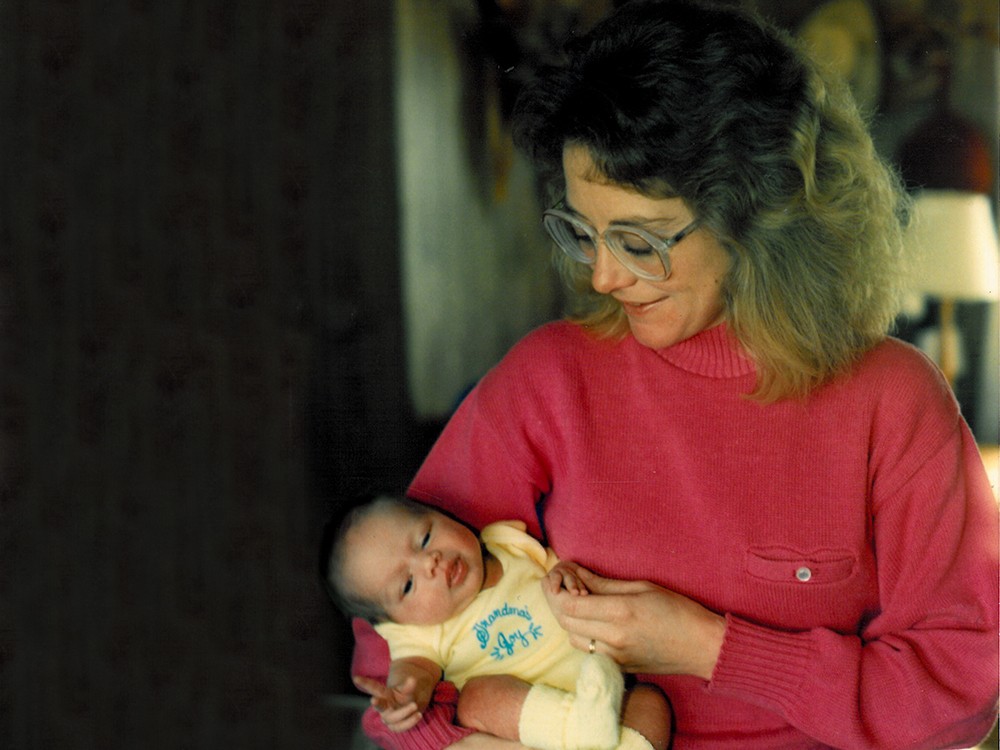
When I learned my mom was dead, I knew I was supposed to be sad. I ran out the front door, the screen slamming behind me, and sat under a big pine tree. I pulled my knees to my chest and rocked back and forth.
But after a few minutes, I went back inside. I ate dinner, and the next day I went to my third week of ninth grade as if nothing had happened.
My mom had been a high-functioning alcoholic for most of my life and a lower-functioning one in the years before she died. I remember midnight dancing in our socks on the hardwood floors of our kitchen and waking up on Saturday mornings to ice rattling against a glass of gin and tonic. Even the best memories eventually soured. I started to realize what other parents weren’t doing — falling asleep before dinnertime, swerving into traffic on the drive home from school — and my naïveté morphed into anger and then apathy.
When she died, I didn’t go to her funeral. But now, almost a decade later, I’m haunted by questions.
For one: How did a woman like this — the only one of five kids to go to college, who’d worked as a clerk for a federal judge in Boise and owned her own law firm in Post Falls — die alone on the floor of a trailer before her only child graduated high school?
I knew that three years before her death, she had spent a month in rehab and then moved back to north Florida, where she grew up and met my dad more than 20 years earlier. She got a job at an Irish pub, where she started drinking again. At some point, she had moved to a riverside area called Fort George, where she worked at a catering company. One morning she didn’t wake up; her death certificate says that’s because of “complications of chronic alcoholism.”
I start looking for answers and dig out the obituary someone had clipped from the Florida Times-Union — I had never read the whole thing. In it, the writer includes “her companion Gene Helms” as one of her survivors. I’ve never heard of him. Between the clinging pages of my dad’s yellowed photo albums, I see her in thick plastic glasses carrying her University of Arkansas law degree, in a bikini on the beach, and grinning in a powder-blue suit in front of the Idaho Supreme Court.
I ask relatives for anything they can remember. They say they never understood why she spiraled the way she did, but they know the shame of what she’d lost kept her drinking.
“I don’t know if she was happy,” one of her sisters tells me. “But I know she was proud of you.”
I call the restaurant and catering company where she worked, Nicole’s On The River, where there’s an American flag out front and fried chicken, shrimp, and liver and onions on the menu. In Southern drawls punctuated with words like “darlin’ “ and “sweetheart,” everyone says they miss Carol, and wish they’d done more to help.
“I didn’t really know how bad [her drinking] was,” a woman named Bobbi tells me. “One day she was crying and I realized she was drinking and I said, ‘Carol, what’s wrong? Have you been drinking?’ and she said, ‘I drink every day. I think about my daughter and how I don’t get to see her and it upsets me.’”
Everyone tells me to talk to a woman named Miss Dawn. She’s frank and direct. She tells me Mom would ride her bike to open the restaurant at 5:30 am every day, but she’d already be drinking. When she got off in the afternoons, she’d go to a bar nearby. She was a fun drunk, Miss Dawn says, but she just didn’t know when to stop.
In the three days before she died, she’d been sick with flu-like symptoms, but was afraid if she went to the emergency room, they’d force her into rehab. On the second day, Miss Dawn wanted to try to convince my mom to see a doctor, but didn’t.
The next day she was determined to do so, but it was too late. That morning, my mom was found dead on the floor of her bedroom.
I request the autopsy report from the county medical examiner, and it’s both fascinating and nauseating in its simplicity.
“The stomach contains a measured 321 milliliters of brown liquid, having flocculations (‘coffee grounds’), without food…” it says. “The small and large intestines are unremarkable.”
At the end, the report reads, “MANNER OF DEATH: Natural.” She was 48.
When I started looking for answers, I thought I was after my mom’s final moments. It bothered me not to know what exactly had killed her, or why she was on the floor instead of in her bed, or why something she’d been doing my whole life suddenly overwhelmed her.
But what I’ve found is something less tangible. As a kid, I thought I was better off without her, that she deserved what happened to her. As an adult, I see that nothing is so simple. That not everything makes sense; not everyone gets what they deserve. And that while a hardened heart keeps us safe, it also keeps us from knowing those closest to us.
As I get older, it becomes harder to hold on to the dispassion I felt at 14, sitting under that giant pine tree.






















